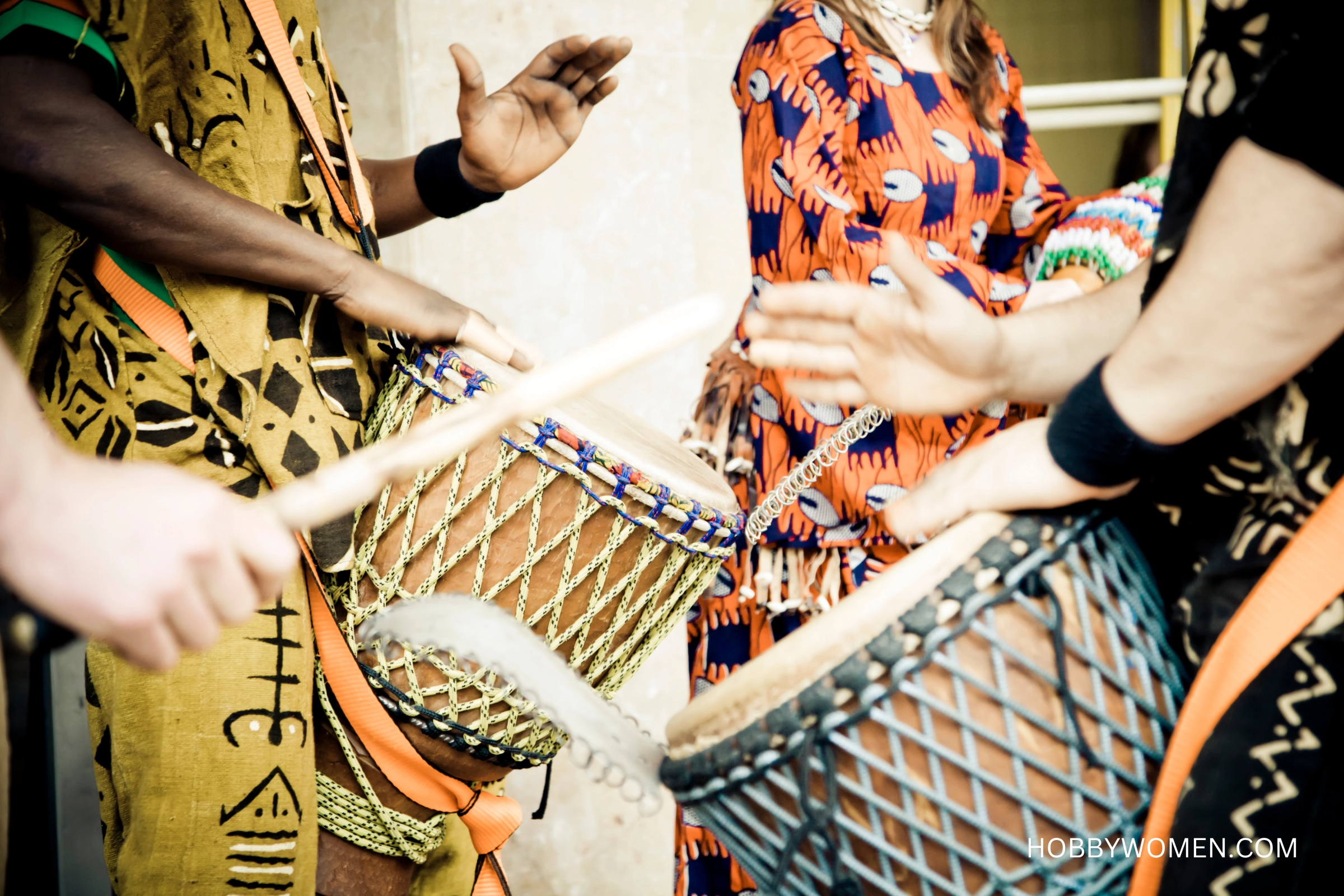This post may contain affiliate links or ads and we may earn a small commission when you click on the links at no additional cost to you. As an Amazon Affiliate, we earn from qualifying purchases. This is at no additional cost to you and helps with our website expenses.
We’re about to dive into the colorful world of cultural hobbies! These are not just your ordinary pastimes.
Oh no, cultural hobbies are unique activities deeply rooted in various societies and traditions around the globe. They’re like a passport, providing us with an intriguing glimpse into different cultures without leaving the comfort of our homes.
The Significance of Cultural Hobbies: More than Just Pastimes
Now, why should we care about cultural hobbies?
Well, they are much more than a way to kill time. They’re vital threads in the rich tapestry of human history and diversity.
By understanding and appreciating cultural hobbies, we embark on a journey of cultural exploration. It’s about more than just having fun (though there’s plenty of that too!).
It’s about connecting with different ways of life, broadening our horizons, and celebrating the wonderful diversity of our global community.
Unearthing the Treasures: Cultural Hobbies from Around the World
Navigating through the cultural landscape of the world is an exciting adventure. It’s like rummaging through a treasure chest of fascinating traditions. So, let’s embark on this journey and discover some cultural hobbies from different corners of the globe.
Asia: The Artistic East
- Japanese Origami: Transforming a simple piece of paper into intricate sculptures, origami is a Japanese art form dating back centuries. It’s not just about making pretty things; it’s a meditative practice symbolizing transformation and creativity.
- Chinese Calligraphy: Here’s an art form that’s all about grace and rhythm. Chinese calligraphy is more than just writing; it’s a dance of the brush on paper, deeply rooted in Chinese culture and philosophy.
Africa: The Vibrant Continent
- West African Drumming: Feel the beat! West African drumming isn’t just about making music; it’s a form of communication, a heartbeat that connects communities.
- Maasai Beadwork: The Maasai people of East Africa have a beautiful tradition of beadwork. Each color and pattern tells a story, making each piece a vibrant tale of life and tradition.
Europe: The Historic Heart
- Irish Celtic Music: It’s time to tap your feet to the lively tunes of Irish Celtic music. This tradition is all about community, storytelling, and a whole lot of fun.
- Italian Pasta Making: Who doesn’t love a good plate of pasta? But in Italy, pasta-making is more than a culinary skill; it’s a cherished tradition passed down through generations, each family boasting their unique recipe.
And that’s just scratching the surface! Each cultural hobby carries the spirit of its people, a beautiful reflection of their history, values, and lifestyle.
So, why not pick one and give it a go? You might just discover a newfound passion while also gaining a deeper appreciation for a different culture. Now, isn’t that a win-win?
Cultural Hobbies: The Keepers of Tradition
Ever wondered why your grandma insists on teaching you that special knitting pattern or why your uncle takes so much pride in his salsa dance? Well, it’s not just about mastering a skill or having a fun pastime.
These cultural hobbies often serve as torchbearers of tradition, passed down through generations like precious heirlooms.
Picture this: A child sitting with their elder, learning the delicate strokes of Chinese calligraphy, or a group of friends gathering in a Dublin pub to play a lively set of traditional Irish music.
These are more than just hobbies; they’re living, breathing links to the past.
Through these activities, the wisdom, values, and stories of our ancestors are kept alive, maintaining a continuous thread to our history and heritage.
Cultural hobbies are like time capsules, each beat of the West African drum echoing ancient rituals, every fold of a Japanese origami figure mirroring centuries-old artistry.
By engaging in these hobbies, we don’t just preserve these rich traditions; we become active participants in a timeless cultural dialogue, contributing to the vibrant tapestry of global diversity.
25 Cultural Hobbies
- Japanese Origami
- Italian Pasta Making
- Irish Celtic Music
- Chinese Calligraphy
- Maasai Beadwork
- Brazilian Capoeira
- Indian Rangoli Art
- Flamenco Dancing (Spain)
- West African Drumming
- Australian Aboriginal Dot Painting
- French Wine Tasting
- Russian Nesting Doll Painting
- Arabic Coffee Brewing
- Korean Hanji Craft
- Scottish Highland Dancing
- Turkish Rug Weaving
- Hawaiian Hula Dancing
- Greek Pottery Making
- Mexican Folk Dancing
- Indian Yoga
- Norwegian Wood Carving
- Peruvian Pan Flute Playing
- Moroccan Mint Tea Brewing
- Thai Fruit Carving
- Polynesian Tattooing
The Adventure of Learning: Expanding Horizons Through Cultural Hobbies
Ever thought about embarking on an international adventure from the comfort of your own home? Buckle up, because cultural hobbies are your ticket to a world of learning and personal growth!
Diving into Diverse Cultural Hobbies
Exploring cultural hobbies beyond your own is like stepping into a kaleidoscope of traditions. Here are some examples:
- Artistic Adventures: Try your hand at Japanese origami, Chinese calligraphy, or Maasai beadwork. Each of these activities invites you into a world of artistry deeply rooted in cultural traditions.
- Musical Journeys: Feel the rhythm with Irish Celtic music or West African drumming. These aren’t just musical pastimes; they’re vibrant expressions of community and storytelling.
- Culinary Explorations: Ever made pasta from scratch? Italian pasta making isn’t just a culinary skill, it’s an immersion into Italy’s love for food and family.
Engaging in these activities isn’t just about acquiring a new hobby; it’s an opportunity to broaden your understanding of diverse cultures and ways of life.
The Personal Growth Adventure
And the benefits don’t stop there! Here are some ways engaging in different cultural hobbies can foster personal growth:
- Appreciation for Diversity: Each hobby you explore is a testament to the rich tapestry of global cultures.
- Broadened Perspectives: As you delve into different hobbies, you’ll find your worldview expanding, fostering greater open-mindedness.
- Enhanced Creativity: Exploring different cultural art forms can give your creativity a serious boost.
- Increased Empathy: Understanding different cultural traditions can help foster empathy and understanding.
So, why not embark on this exciting adventure? Whether you’re folding an origami crane, strumming an Irish tune, or kneading pasta dough, you’re not just picking up a new hobby.
You’re opening a window into a whole new world of cultural experiences and personal growth. How’s that for a productive pastime?
Building Bridges: Connecting Cultures Through Hobbies
Cultural hobbies are more than just fun activities; they’re powerful tools for building connections and fostering understanding among people from different backgrounds. Let’s dive into how these hobbies can create cultural bridges and promote unity.
Creating Connections Through Shared Interests
Let’s consider a few examples:
- Calligraphy Clubs: Imagine joining a calligraphy club where members share their love for this artistic writing. You’d find people from different backgrounds bonding over Chinese or Arabic calligraphy, appreciating the beauty and precision of each stroke.
- Music Festivals: Think of a music festival celebrating global rhythms. You’d see people swaying to the beats of West African drums, tapping their feet to Irish Celtic tunes, or being enchanted by the melody of a Spanish guitar. Music, a universal language, binds people together.
- Cooking Classes: Picture a cooking class where people learn to make pasta from scratch or roll sushi. The kitchen becomes a place of cultural exchange, as participants share stories about their own culinary traditions while discovering new ones.
Fostering Understanding and Respect
By participating in cultural hobbies, you’re not only learning about different traditions but also creating a space for dialogue and understanding. Here’s how:
- Breaking Stereotypes: Engaging in various cultural hobbies helps dispel stereotypes, as you get a more nuanced understanding of different cultures.
- Cultural Exchange: Each hobby is an opportunity for sharing and learning, fostering an environment of mutual respect and appreciation.
- Common Ground: Shared interests in cultural hobbies can serve as common ground, bringing people together despite their differences.
So, whether you’re part of a multicultural book club, a global dance troupe, or a diverse cooking group, remember that each activity is more than just a hobby.
It’s a bridge connecting different cultures, fostering understanding, and celebrating the beautiful diversity of our world.
Blending Tradition and Innovation: Cultural Hobbies in the Modern World
As we navigate through the 21st century, cultural hobbies are not just surviving; they’re thriving and evolving. Let’s take a look at how these hobbies are adapting to modern times, blending tradition with innovation.
The Evolution of Cultural Hobbies
Here are a few examples of cultural hobbies that have embraced the modern world without losing their traditional essence:
- Digital Origami: While the ancient art of Japanese origami remains true to its roots, digital platforms now offer online tutorials and virtual origami simulators. This allows a wider audience to learn and appreciate this delicate art form.
- Fusion Music: Traditional Irish Celtic music or West African drumming often blend with modern genres to create fusion music. This innovative approach brings these cultural rhythms to contemporary audiences while preserving their cultural essence.
- Online Cooking Classes: Traditional cooking, such as Italian pasta-making, has found a new platform through online classes. This not only makes these culinary skills accessible to a global audience but also allows for an exchange of culinary traditions.
Striking a Balance Between Tradition and Modernity
While modern adaptations can make cultural hobbies more accessible, it’s essential to strike a balance. Here’s why:
- Preserving Cultural Heritage: While adaptations can bring cultural hobbies to a larger audience, it’s crucial to retain the cultural nuances that make these hobbies unique.
- Respecting Origins: As we adapt these hobbies, we must respect and acknowledge their origins. This ensures that the tradition’s essence remains intact even as it evolves.
- Encouraging Cultural Exchange: Modern adaptations should aim to foster cultural exchange, creating a platform for learning and understanding different traditions.
In a rapidly evolving world, cultural hobbies serve as a testament to our ability to innovate while preserving our roots. By thoughtfully modernizing these activities, we can ensure that these cultural treasures continue to enrich our lives for generations to come.
Embarking on the Cultural Hobbies Journey: Resources to Get You Started
Are you ready to embark on your cultural hobbies adventure? Fantastic! Here’s a list of resources to help you dive into the vibrant world of cultural hobbies and start your own journey of exploration and learning.
Diverse Resources for a Cultural Adventure
- Online Tutorials: Platforms like YouTube and Skillshare offer a plethora of tutorials on everything from Japanese origami to Italian pasta-making. Learn at your own pace and discover a hobby that resonates with you.
- Books: Dive into books like “The Art of Origami: An Illustrated Guide” or “Pasta Grannies: The Official Cookbook” to delve deeper into these cultural hobbies.
- Cultural Festivals: Keep an eye out for local cultural festivals. They often host workshops on traditional hobbies, providing a hands-on learning experience.
- Cultural Centers: Local cultural centers often offer classes and workshops on a variety of cultural hobbies. Check out your local community center or library for opportunities.
- Online Communities: Join online forums or social media groups dedicated to your chosen hobby. These platforms offer valuable advice, inspiration, and a sense of community.
Your Cultural Journey Awaits
As you dive into the world of cultural hobbies, remember to keep an open mind. Each hobby presents an opportunity to learn, grow, and connect with different cultures.
Final Thoughts and Conclusion to Cultural Hobbies
Whether you’re intrigued by the precision of Chinese calligraphy, the rhythms of Brazilian capoeira, or the creativity of Indian rangoli art, don’t hesitate to dive in.
Embrace the adventure of learning, the joy of understanding, and the excitement of connecting with cultures around the globe.
Remember, every beat of the drum, every fold of paper, every dance step is a celebration of our shared human experience, a testament to our incredible cultural diversity.
So, pick a hobby, start your journey, and open your world to a wealth of cultural treasures. The world is full of wonders waiting to be explored.









